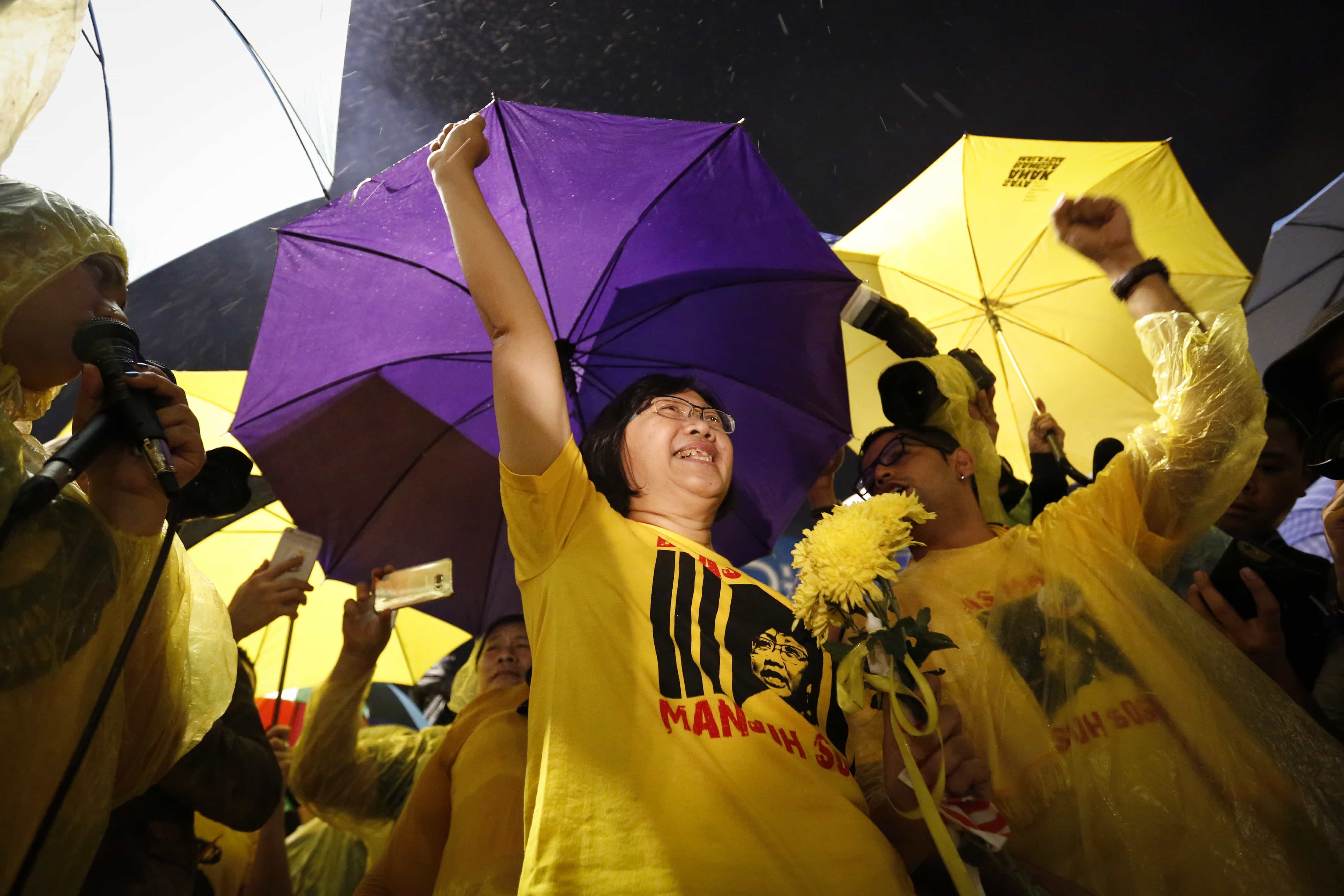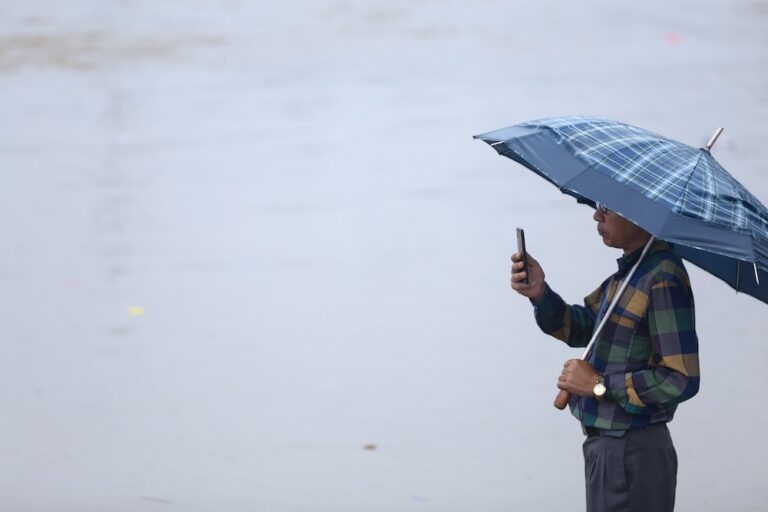A global campaign for journalist safety, Malaysia's clampdown and female journalists as human rights defenders in Burma are among the top stories in our monthly round-up of Asia Pacific news.
In Malaysia, civil society groups and independent media outlet Malaysiakini.com were targeted during the month, with politicians and the authorities accusing them of trying to topple the government. In particular, they were accused of receiving funds from billionaire and philanthropist George Soros, whose Open Society Foundations support civil society initiatives.
Ahead of the fifth electoral reforms rally held by the Bersih coalition on 19 November, members of the organising committee and supporters were arrested. The coalition’s secretariat head, Maria Chin Abdullah, was held in solitary confinement for nine days under an anti-terrorism law. The police claimed they were investigating her for foreign intervention in national politics.
International human rights organisations, among them Human Rights Watch and the Southeast Asian Press Alliance, issued a statement calling for her release and criticised the state crackdown on the rally supporters. The Centre for Independent Journalism and the Committee to Protect Journalists called on the government to end the intimidation of the media. Maria was released on 28 November, hours after the police raided the office of another non-governmental organisation, Empower, which housed the Bersih secretariat in the past.
Emerlynne Gill of the International Commission of Jurists, tweeted about the raid:
Harassing @empowermalaysia is a very thuggish and despicable act by #Malaysia police. Is the gov’t this intolerant of dissenting views? https://t.co/41oiV8w3pm
— Emerlynne Gil (@EmerlynneGil) November 28, 2016
Activist Fahmi Reza, who was detained at the end of the rally, joined the thousands who gathered and marched for Maria’s release, using his art as expression of support.
Being held for 28 days in solitary confinement is torture. Free Maria now. #MansuhSOSMA #BebasMaria #Art4Maria #Bersih5art #Bersih5 pic.twitter.com/Jt4z10lfSC
— Fahmi Reza (@kuasasiswa) November 26, 2016
Women’s rights advocate Juana Jaafar tweeted about a women’s march to Parliament to protest Maria’s detention:
Women gather in Padang Merbok for the release of Maria Chin who’s been detained under SOSMA for heading #Bersih5.#BebasMaria ! pic.twitter.com/94Pyiwtamc
— Juana Jaafar (@juanajaafar) November 23, 2016
Women under pressure for raising cases of sexual violence
In Burma, the military places restrictions on media covering the ongoing conflict in the western state of Rakhine, where thousands of Rohingyas have been displaced since an attack on the border police posts on 9 October. Media reports quoted the authorities as blaming the attack on a Rohingya militant group. Women activists and journalists have come under pressure over their reports alleging sexual violence perpetrated against Rohingya women. Journalist Fiona MacGregor with the Myanmar Times was sacked following pressure believed to be from the military, over her 27 October report, citing several women activists who were monitoring the situation. Article 19 called for a full investigation into allegations of sexual violence and the censure of journalists reporting on the issue. The Southeast Asian Press Alliance marked International Women Human Rights Defenders Day on 29 November, in response to the challenges faced by women covering conflict situations, with stories from four journalists who use different media platforms to highlight marginalised voices in Burma.
International Day to End Impunity
IFEX members commemorated the International Day to End Impunity for Crimes Against Journalists on 2 November, and shared reports on country-specific situations. In Pakistan, the Pakistan Press Foundation’s report Justice Delayed and Justice Denied documented threats against media in 2016 and questioned the delay in bringing perpetrators in the 67 cases of journalist killings since 2002, to justice. “The draft of the much publicized media safety bill by the federal government is not only woefully inadequate but seems to be stuck because of procedural and bureaucratic hurdles,” PPF noted in its report. IFEX featured Shan Dahar, a television journalist with Abb Takk Television who was killed in 2014, as one of the emblematic cases for this year’s No Impunity campaign.
Shan and his family deserve justice #NoImpunity #EndImpunity https://t.co/zdzwaBq3rg pic.twitter.com/42FutC4vFo
— Nazia Memon (@NaziaMemon01) November 2, 2016
The International Federation of Journalists (IFJ) focused on Pakistan as one of the four countries in their global campaign this year. The others are Mexico, India and Yemen. It said that the state of lawlessness and widespread impunity have led to more attacks against journalists, while forcing others to self-censor. Pakistan, together with the Philippines, India and Afghanistan, make Asia Pacific one of the most dangerous regions for journalists to work. IFJ says that on average, a journalist is killed every 10 days in this region.
26 journalists and media workers have been killed in the Asia Pacific region already in 2016 #endimpunity pic.twitter.com/1E4xZvdNKp
— IFJ Asia-Pacific (@ifjasiapacific) November 2, 2016
Anniversary of the Ampatuan Massacre
In the Philippines, media freedom groups marked the seventh year anniversary of an emblematic case of impunity: the Ampatuan massacre that killed 58 people, including 32 media workers. The Center for Media Freedom and Responsibility said there’s been little progress in the six years since trials began to bring those responsible to justice. It lamented the fact that the trial of the 195 accused in the massacre “was designed for delay”. Given the political environment, which is seen to favour those in power, CMFR says the country needs to undergo a reform of its judicial system. The anniversary was widely covered in the media, in this report in Rappler.com, and on Inquirer.net citing the office of Communications Secretary Martin Andanar admitting that “justice remains elusive to the victims and to their loved ones.” Bulatlat.com reported on how the children of the victims have turned to art in their quest for justice.
Children of Ampatuan Massacre victims turn to art to demand justice https://t.co/RINAYLTVhB pic.twitter.com/rg8RZ4F4Zu
— Bulatlat (@bulatlat) November 23, 2016



